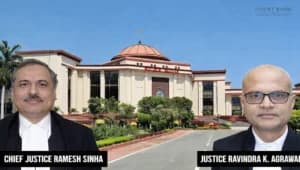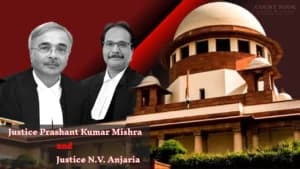The Supreme Court of India, in a landmark ruling on March 3, 2025, emphasized the critical role of expert opinions in determining a child's decision-making capacity in custody disputes. The Court ruled that when there is uncertainty about a child's ability to make independent decisions, expert medical assessments should be prioritized over inferences drawn from direct interactions with the child.
The Case Background:
The case involved a dispute over the custody of a 22-year-old individual, Aadith Ramadorai, who has cognitive abilities equivalent to an 8 to 10-year-old child. Aadith, diagnosed with Ataxic Cerebral Palsy, was at the center of a custody battle between his parents, both US citizens. The Appellant-mother, Sharmila Velamur, sought custody of Aadith, arguing that his cognitive limitations made him incapable of making complex, independent decisions, especially regarding long-term residence and financial matters.
Read Also:- Supreme Court Advocates for Breastfeeding Rights: Public and Workplace Facilities Must Be Ensured
The Respondent-father, V. Sanjay, had taken Aadith to India without the mother's consent, violating a US court order that granted custodial rights to the mother. The Madras High Court, after a brief oral interaction with Aadith, denied custody to the mother, ignoring detailed medical reports that supported Aadith's cognitive limitations.
The Supreme Court, comprising Justices Surya Kant, Dipankar Datta, and Ujjal Bhuyan, overturned the High Court's decision. The Court stressed that expert opinions should be given due credence, especially when they confirm a child's inability to make independent decisions.
"In the event there is any confusion or doubt regarding a person's capacity and ability to make independent decisions and if there is a definitive opinion on disability endorsed by a specialist, domain expert, or a doctor, the Court should give due credence to that opinion."
- Supreme Court
The Court relied on medical assessments from NIMHANS, Bengaluru, and the Idaho Department of Health and Welfare, which concluded that Aadith had a cognitive functioning level of an 8-10-year-old child. These reports highlighted that Aadith lacked the capacity to make informed decisions about higher-level activities, financial matters, and complex social responsibilities.
Read Also:- Supreme Court Declines Contempt Petition on Alleged Illegal Demolitions in Gujarat
1. Expert Opinions Over Direct Interactions: The Court ruled that a brief oral interaction with a child lacking independent decision-making capacity cannot justify granting custody to one parent when expert medical reports clearly establish the child's inability to make decisions.
2. No Implied or Express Consent: The Court emphasized that if an expert report determines that a person's mental or physical age is significantly below the age of majority, no 'implied' or 'express' consent can be inferred for any action that may have a substantial impact on them.
3. High Court's Error: The Supreme Court criticized the High Court for dismissing the expert's opinion without proper justification. The High Court should have ordered an inquiry through a reputable medical institution if it had doubts about the reliability of the expert report.
"Dismissing all aspects of scientific assessment in a highly specialized and niche area of medicine was misconceived and ill-founded."
- Supreme Court
The Supreme Court allowed the appeal and granted custody of Aadith to the Appellant-mother, permitting her to take him back to the USA. The Court also directed that Aadith should continue his schooling in the US and reside with his younger brother, Arjun, under the mother's guardianship.
Case Title: Sharmila Velamur Versus V. Sanjay and Ors.















